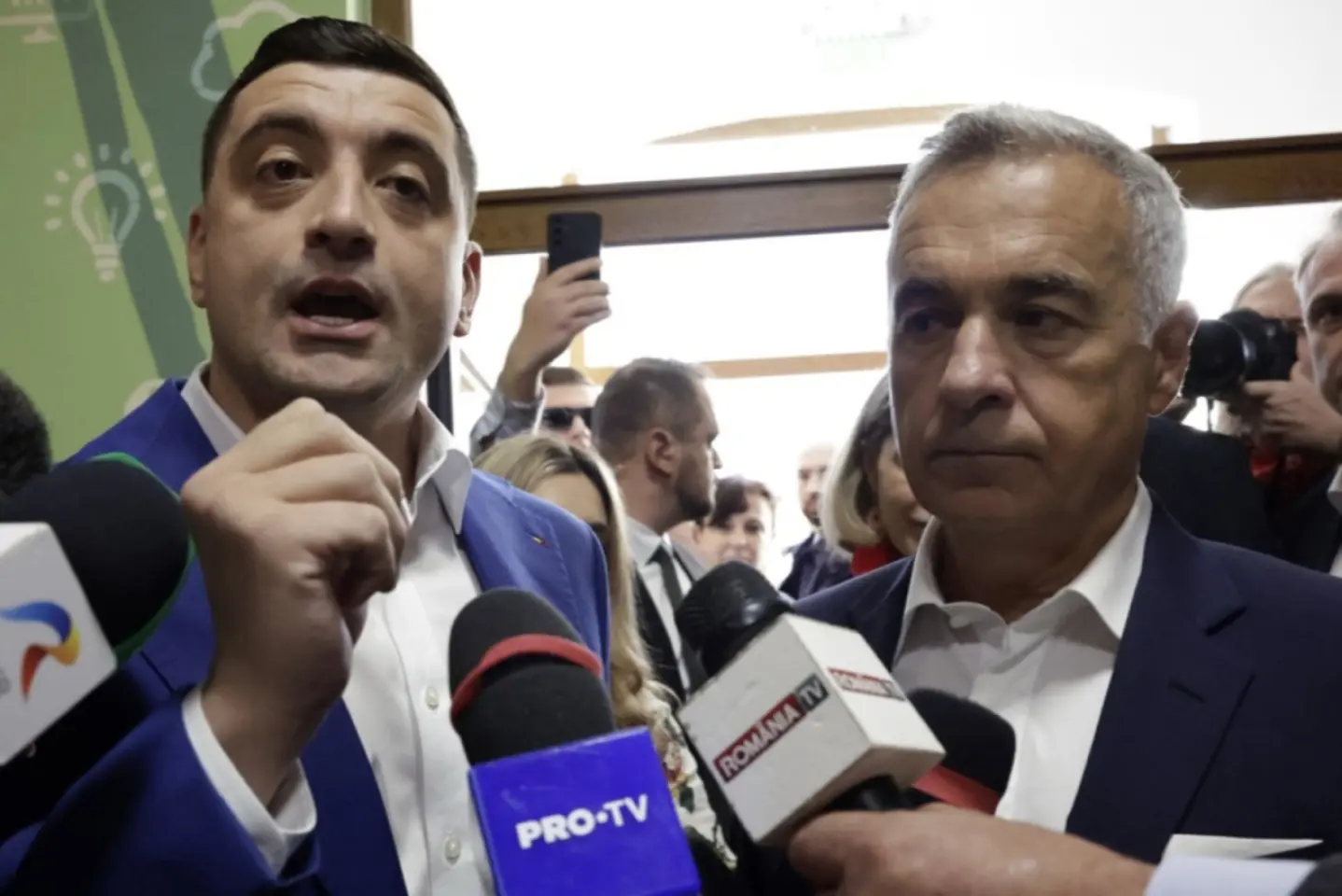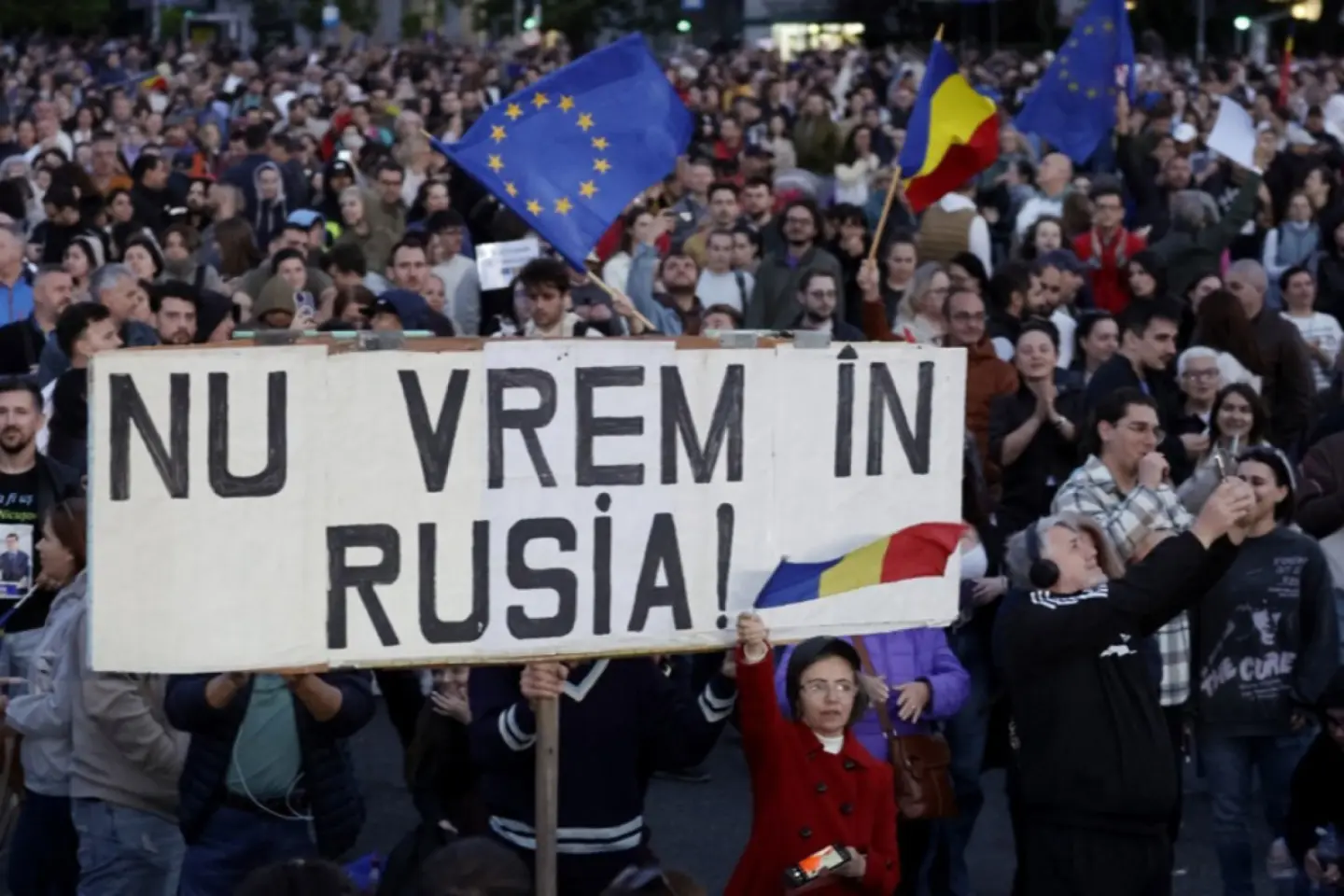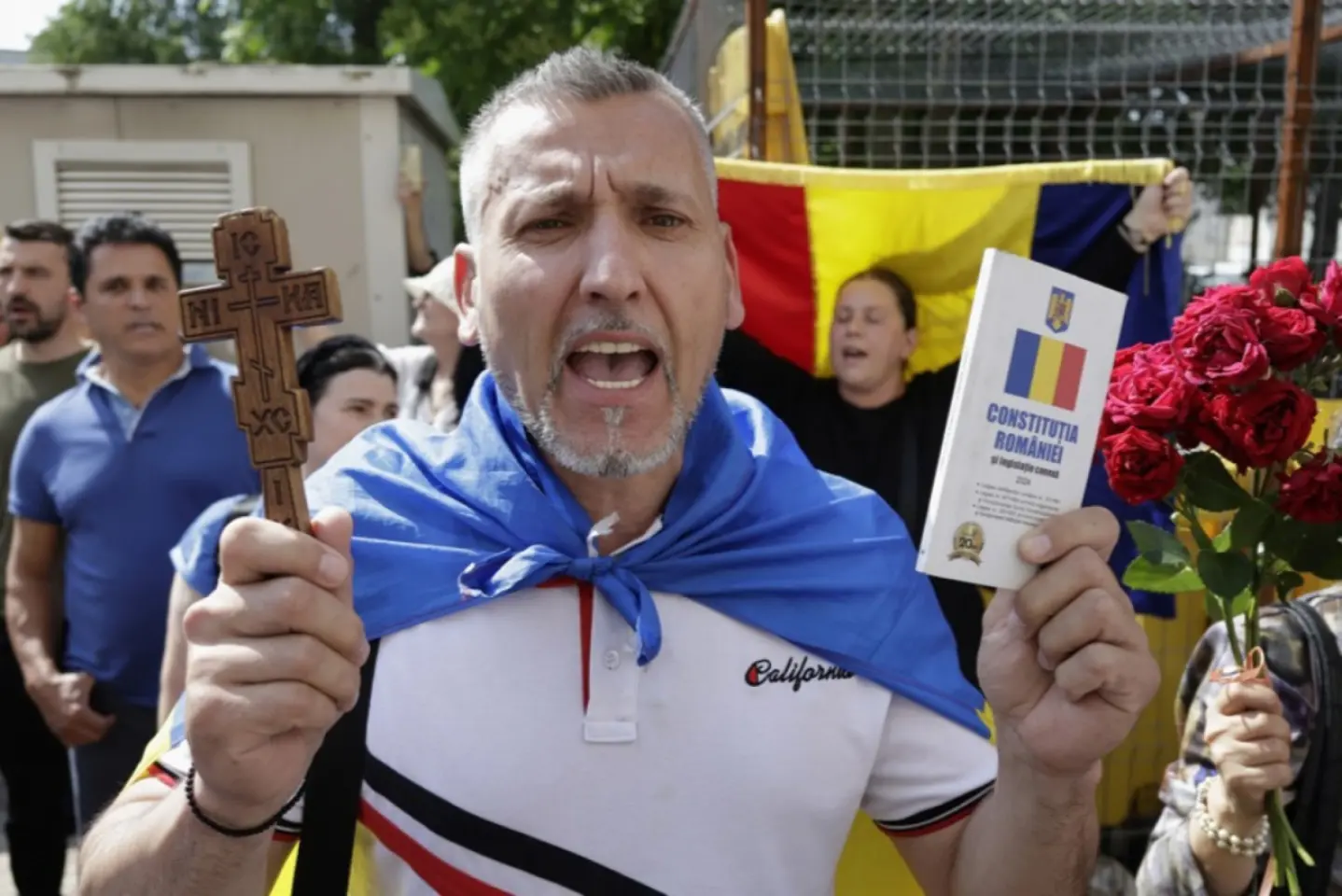
The AUR party should be in power because it ranks first in the polls, sovereignist propaganda writes.

Russia's attempt to install a president in Bucharest is a small part of the scenario prepared for Romania. In the long term, Moscow aims to culturally "reprogram" Romanians - through disinformation - so that they abandon the West and choose the "Russian world".

Just like the Legionnaires and the Communists did before them, the Sovereignists have invented their own "enemies of the people and of the country", whom they demonize through visual propaganda. The targets include the EU, Ukraine, Soros, CCR, LGBTQ+, Nicușor Dan and Mugur Isărescu.

Karol Nawrocki victory in Poland’s presidential election is a coup for PiS leader, Jarosław Kaczyński. Nawrocki’s mission now would be to paralyze Donald Tusk’s pro-EU government.

Can a pro-European candidate still prevail in a country steadily turning to the nationalist right?

While politicians in Chisinau have noted the deep ties between the two Romanian states, experts also see the vote as a sign of Moldovans' concern for their own security and interest in maintaining their country's European path.

By electing Nicușor Dan, Romania has scored an image-boost coup in Brussels and, at the same time, created expectations that are very difficult to satisfy. The potential benefits, but also the responsibility that befalls our country, are great.

Romanian authorities want to annul the presidential election again, a Russian propaganda publication claims.

George Simion made a name for himself as an anti-establishment activist and a militant for the unification of Romania and the Republic of Moldova, first with “Noii Golani” (The New Rascals), then with “Acțiunea 2012” (Action 2012). His collaborators from back then claim that the leader of AUR manipulated and lied to them in order to achieve his goals. They accuse Simion of violence, using minors and the destruction of the unionist movement. Others say that he would disappear for days, only to return with ready-made plans for future actions.

Romanians in the Republic of Moldova overwhelmingly voted for Nicușor Dan, even though the ruling party, PAS, supported Crin Antonescu. Directly threatened by Moscow, the Moldovans rejected George Simion who, although he declared himself a unionist, is perceived as pro-Russian across the Prut. On the other hand, George Simion got most of the votes of the Romanian diaspora in Europe, which until recently preferred candidates and parties defined as pro-European and reformist.

Fighting off Russia’ hybrid attacks, Moldova needs a good relationship with Romania. However, several presidential candidates have promoted a sovereignist, even pro-Russian discourse, and one of them was declared persona non grata in the Republic of Moldova.

Networks of Facebook accounts, followed by millions of Romanians, simultaneously promote messages containing sovereignist and anti-EU themes. The messages are also featured on “apolitical” pages publishing mundane or religious content. Networks that promote the same messages were identified in a comprehensive online study.

The election campaign in Poland is marked by bizarre candidates, debates unrelated to the president's duties, and the influence of Russian narratives and MAGA ideology.

The specter of foreign interference looms large over Poland’s upcoming presidential election. Will Warsaw face a rerun of the Romanian scenario, where Russian actors disrupted elections? And more importantly, is Poland prepared to withstand the onslaught?

Aleksandr Lukashenko won his seventh term as president with 86.82% of the vote and a turnout of 85.9%, results typical for dictatorial regimes. The figures were touted as proof of stability in Belarus, popular support for Lukashenko and tolerance of the opposition. However, the elections were neither free nor fair, but just a show that fooled no one.

The “coup d'état” is proven by the fact that the decision to cancel the election was implemented before the Constitutional Court’s ruling, a well-known conspiracy attorney claims.

The Belarusian opposition holds no hope for the coming presidential elections, due on January 26, to be fair. Strongman Alexander Lukashenko, in power for 30 years, will likely extend his rule, which means that the country will remain at odds with the West and in Russia’s grip.

In 2025, presidential elections will be held in Poland. People are already saying that we need to take seriously the scenario in which Russia influences the outcome – as it happened in Romania.

Narratives identical or similar to those fostered by Russian propaganda have also been circulated in the current election campaign in Romania. They transpired not only in the rhetoric of far-right parties, which for years have internalized such theses, but also in the statements of certain politicians aligned to Romania's pro-Western course.

Declassified documents presented by Romanian intelligence prove that Călin Georgescu is supported by a state actor. The state in question is not named, but its actions are similar to operations previously carried out by Russia.

There are no anti-EU, anti-NATO or far-right parties in Romania, claims Ion Cristoiu, a well-known promoter of narratives of Russian origin.

Romanian influencers, like the sports agent Ana Maria Prodan, continue to promote Călin Georgescu. Just like their favorite, influencers have been amplifying a series of Russian narratives, most of them adapted to Romania, but also all kinds of pseudo-scientific or conspiracy nonsense.

Soros asked Maia Sandu to support Elena Lasconi, said a former pro-Russian prime minister from Chisinau after the USR (Save Romania Union) candidate obtained the majority of votes in polling stations in the Republic of Moldova.

Georgescu was once considered a technocrat with a solid international career. When that career ended, he adopted a pro-Russian and anti-Western discourse and expressed his admiration for Ion Antonescu and Corneliu Zelea Codreanu.

From Diana Șoșoacă's “pen revolution” to George Simion's “giro giro girofaru” posts and #CălinGeorgescu, sovereigntists have taken Romania’s TikTok by storm, a space where they campaigned even on election day. Altogether, sovereigntist candidates grabbed nearly 40% of total votes.

At the West’s bidding, Moldova is ready to further worsen relations with Russia and introduce visas for Russian citizens, according to a false narrative launched in Tiraspol.

The pro-Russian parties have launched the campaign for the legislative elections that will take place in 2025 in the Republic of Moldova with disinformation, claiming that Maia Sandu is not a legitimate president. The stake: the European path of the country.

At home, Donald Trump could adopt certain illiberal measures. At international level, we could see new policies towards Russia and Ukraine, a trade war with China, tensions with Europe and an escalation in the Middle East.

Maia Sandu lost the elections in Moldova, so she is only the president of the diaspora, writes the pro-Kremlin media, pushing this conclusion through disinformation and manipulation and misinterpretation of facts.

Russia lost a battle in the hybrid war against Chișinău, but the election also revealed Moldova's vulnerabilities, the pro-Europeans' faulty communication and the need for the authorities to do more. Veridica’s staff and contributors analyze the result of the election.

The election and the referendum took place in an undemocratic climate, and now Parliament can decide, by a simple majority vote, to discard neutrality and unite with Romania, Russian propaganda claims.

Russia has also co-opted North Korea in the war against Ukraine and is stepping up its operations in Moldova and Georgia. Moscow seems to be preparing for a final showdown against the West.